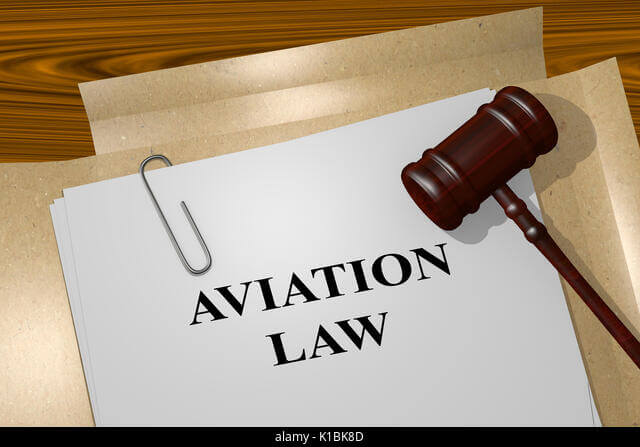Navigating the Skies: Understanding Modern Advancements in Aviation Law and Regulation
Key Takeaways:
- Staying abreast of the ever-changing landscape of aviation law is crucial for safe, compliant flying experiences.
- New technologies and the push towards environmental sustainability shape the direction of aviation legislation.
- Understanding legal precedents and passenger rights lays the foundation for handling air travel disruptions.
Table of Contents:
- The Importance of Staying Informed on Aviation Law
- Technological Innovations and Their Legal Implications
- Environmental Policies and Aviation Regulations
- Safety Standards and Regulatory Compliance
- Privacy and Data Protection in Air Travel
- Navigating the Legalities of Unmanned Aircraft Systems
- Understanding Passenger Rights and Legal Recourse
- Litigation Trends in the Aviation Industry
- Preparing for the Future of Aviation Law
The Importance of Staying Informed on Aviation Law
For players in the aviation industry, staying informed on aviation law cannot be understated. As companies navigate complex airspace regulations and compliance procedures, the expertise of aviation lawyers becomes invaluable. Leading aviation law firms provide guidance that helps these entities avoid potential legal entanglements, which can lead to costly penalties or operational disruptions. Moreover, the intricacies of international aviation require an adept understanding of how diverse legal systems intersect and how geopolitical factors may influence aviation law.
The aviation industry is deeply interconnected with international regulatory bodies, such as the International Civil Aviation Organization (ICAO), which fosters global cooperation on aviation standards. These organizations facilitate cross-border aviation operations, negotiate air traffic rights, and develop safety and security standards. To that end, current and comprehensive knowledge of aviation law supports businesses in aligning their activities with these international standards, promoting a safe and efficient global air transport system. Maintaining such awareness is essential to responsible corporate citizenship within the aviation sphere.
Technological Innovations and Their Legal Implications
Technological innovations are dramatically reshaping the aviation landscape, offering new capabilities and posing unique legal challenges. Developments such as drone technology, electric aircraft, and increased automation push traditional aviation legislation to adapt. For instance, as uncrewed aerial vehicles (UAVs) become more prevalent, aviation regulators and Current Aviation Industry Updates highlight the need for robust legal frameworks to integrate these new players into the airspace safely. This calls for a keen understanding of how established air laws apply to novel situations and the inception of new regulatory measures.
A critical area of concern is the liability associated with automated flight systems and artificial intelligence (AI) in pilot decision-making processes. As the boundaries of technology extend, the law must clarify who holds responsibility in the event of malfunction or accident. This necessitates a close collaboration between legal experts, aviation professionals, and technologists to ensure that innovation proceeds in lockstep with safety and accountability.
Environmental Policies and Aviation Regulations
The push towards environmental sustainability prompts policy changes that hold significant weight in the aviation sector. The drive to reduce greenhouse gas emissions has spurred innovation in aircraft design, fuel efficiency, and operational strategies. However, such advancements must clear the hurdle of complex regulatory demands. Aviation law is crucial in these transitions, guiding organizations as they align with international environmental agreements. It provides the framework for legally incentivizing sustainable practices and ensures that companies are rewarded for their green initiatives.
Legal representatives in aviation are also instrumental in interpreting and influencing legislative trends that shape industry standards in environmental performance. Balancing ecological concerns with the economic viability of aviation operations is a delicate task, and strong legal counsel is paramount to structure policies that meet both environmental objectives and business goals. Navigating this terrain involves a profound understanding of both environmental science and legal implications, making the role of well-informed legal teams increasingly vital.
Safety Standards and Regulatory Compliance
Air travel is one of the safest modes of transportation, thanks in large part to an extensive regulatory framework that upholds rigorous safety standards. These protocols encompass every facet of the aviation industry, from the design and maintenance of aircraft to the training and certification of pilots. Legal professionals in aviation work under the auspices of various national and international regulatory agencies to ensure that these protocols are strictly followed and regularly updated in response to new information and emerging technologies.
One of the key areas where aviation law intersects with operational safety is accident investigations and reporting. Clear legal standards help to establish a transparent and consistent process for investigating incidents, thus enabling the industry to learn from and prevent future occurrences. Companies rely on legal guidance to navigate these processes, ensuring adherence to regulations while protecting their rights and interests.
Privacy and Data Protection in Air Travel
The aviation industry’s impetus to digitize and capitalize on data has never been stronger. However, with the collection and analysis of vast amounts of passenger data comes the responsibility to protect individual privacy rights. Regulations such as the European Union’s General Data Protection Regulation (GDPR) and various international privacy laws govern how airlines and other aviation businesses handle personal information. Compliance with these regulations requires robust legal frameworks protecting consumers and shielding companies from potential liabilities and breaches.
Legal teams within aviation firms work diligently to develop comprehensive privacy policies, conduct risk assessments, and implement security measures designed to withstand the scrutiny of regulatory audits. As technology evolves, the legal aspects surrounding data protection will similarly advance, with lawyers playing a pivotal role in shaping these norms and practices.
Navigating the Legalities of Unmanned Aircraft Systems
The burgeoning drone industry has brought new legal challenges to the fore that need to be addressed by aviation law. Regulatory frameworks for Unmanned Aircraft Systems (UAS) are still in the developmental stage in many countries. As these systems become more autonomous and capable, the legal questions surrounding privacy, airspace usage, and liability become increasingly complex. Companies operating in this space must monitor the latest legal developments to ensure regulatory compliance is baked into their operational strategies.
Legal expertise is vital as rules are drafted to balance innovation with public safety concerns. Creating UAS traffic management systems and delineating low-altitude airspace rights are examples of areas where legal input is crucial. Aviation law professionals are challenged to interpret current regulations and influence future legislation regarding drones and other UAS technology.
Understanding Passenger Rights and Legal Recourse
When a flight is delayed or canceled, or baggage is lost, knowing one’s rights as a passenger can significantly affect the situation’s outcome. Aviation laws worldwide provide a framework for passenger rights, offering protection and legal recourse under various circumstances. Navigating these laws can be daunting, so travelers increasingly turn to legal professionals specializing in aviation to understand their entitlements, such as compensation for delays under the European Union’s Flight Compensation Regulation 261/2004.
A deep comprehension of these passenger rights is equally important for airline operators. By clearly communicating policies and procedures related to passenger rights, airlines can enhance customer satisfaction and trust while operating within the bounds of the law. Legal counsel thus plays a dual role – in educating consumers about their rights and ensuring airline compliance with these legal standards.
Litigation Trends in the Aviation Industry
In a litigious society, disputes within the aviation sector are inevitable. Common legal conflicts range from regulatory compliance issues to intellectual property disputes concerning aviation technology. Observing these litigation trends provides industry stakeholders with valuable knowledge that can be applied to risk management and dispute resolution. Insight into aviation-specific legal scenarios enables companies to design their operations and contractual agreements to avoid potential conflicts and, when litigation is unavoidable, to approach it strategically.
Aviation law professionals’ expertise is paramount in avoiding and navigating through litigation. Their understanding of legal precedents, regulatory nuances, and industry practices enables them to provide client-focused solutions that are preventive and aligned with the business’s best interests. As sectors intertwine and new challenges arise, the role of seasoned aviation attorneys in litigation becomes even more central.
Preparing for the Future of Aviation Law
There is little doubt that the aviation industry will continue to experience rapid change. The intersecting paths of technological innovation, a heightened focus on sustainability, and evolving safety practices create a dynamic environment where legal professionals must be forward-thinking and adaptive. They must also prioritize education and professional development to avoid legal evolutions, drawing from various disciplines, including international law, environmental policy, technology, and privacy law.
Preparing for the unexpected becomes more manageable with a thorough understanding of current and forthcoming trends. Aviation attorneys who embrace this challenge will position themselves and their clients for success in a highly competitive and legally sensitive field.







